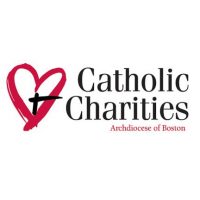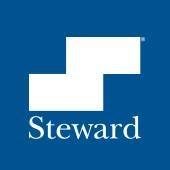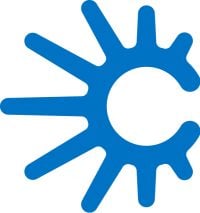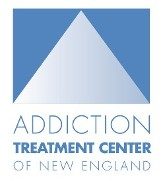Mountain Center for Recovery and Hope
Drug Rehab Center in Waltham, Massachusetts
- Substance Abuse
Mountain Center for Recovery and Hope provides evidence-based inpatient and aftercare support Substance Abuse treatment services in Waltham, Massachusetts, utilizing therapies such as CBT, DBT, Trauma Therapy and Motivational Interviewing tailored to individual needs, and support from qualified psychiatrists, psychologists, and specialists in medication management.
About Mountain Center for Recovery and Hope in Massachusetts
Mountain Center for Recovery and Hope is a substance abuse treatment facility located in Waltham, Massachusetts. Their facility offers a range of services aimed at helping individuals overcome substance abuse and addiction. With a focus on treating people suffering from substance abuse, Mountain Center for Recovery and Hope provides a supportive and caring environment for individuals seeking to get sober. They offer inpatient and aftercare support levels of care, ensuring that individuals receive the appropriate treatment and support at different stages of their recovery journey.
Mountain Center for Recovery and Hope provides a comprehensive range of services and treatment methods to address addiction and substance abuse. Their team of experienced professionals utilizes evidence-based practices and individualized treatment plans to meet the unique needs of each patient. Through therapies such as cognitive-behavioral therapy and motivational interviewing, they help individuals develop coping strategies, address underlying issues, and build a solid foundation for long-term recovery. Additionally, they offer group therapy sessions, educational programs, and relapse prevention strategies to support individuals in maintaining sobriety.
Genders
Ages
Modality
Additional
Conditions and Issues Treated
Rehabilitation, Medication, and Therapy – a combination of all three is most effective.
The most successful treatments for drug dependence or abuse have been those that include education and counseling and medication such as methadone or buprenorphine. The right drug abuse treatments need counseling, psychotherapy, and detoxification or medications to help with withdrawal symptoms.
Substance abuse can take many different forms, including the overuse or misuse of prescription drugs, unprescribed drugs, alcohol addiction, and drug addiction.
A combination of treatments is often needed to treat drug abuse issues effectively. In the case of drug abuse, there is no easy answer or one-size-fits-all cure.
While some drug addictions can be treated with counseling and support groups, many drug abusers also need medication to help them overcome their addiction. In other cases, drug abuse can lead to a medical problem and require medical treatment.
Treatment for drug addiction typically combines counseling and psychotherapy with medication and behavioral therapies. In some rare cases, hospitalization may also be required. All different treatments combined are the best way to help someone addicted to drugs, alcohol, or other substances.
Levels of Care Offered
This center offers a variety of custom treatment tailored to individual recovery. Currently available are Aftercare Support, Inpatient, with additional therapies available as listed below.
Inpatient recovery offers individual therapy, groups, and family therapy. The length of inpatient addiction treatment depends on the addict and their addiction. Inpatient rehab is a costly drug treatment, costing anywhere from $30k- to $60k. However, insurance often offers help in covering these costs.
Aftercare support is vital to those who have completed a drug or alcohol treatment program. This support comes in individual and family counseling, treatment of psychiatric and other medical conditions, and medications to reduce cravings. It helps recovering addicts adjust to normal day-to-day activities and can last for a year or longer.
The majority of drug and alcohol addicts who receive aftercare treatment do not relapse. It is estimated that without aftercare, the relapse rate will be between 70 to 90 percent for most people. Aftercare is the final stage in addiction recovery, but it will also help maintain sobriety if relapse does occur.
Therapies & Programs
Trauma therapy is a clinical process that helps individuals deal with mental stress often caused by traumatic events. The therapist helps the person identify, understand and work through the problem. This is done with the help of talking about it in group or one-on-one counseling sessions.
Therapists use relaxation, role-playing, art, and music to help the person open up about what is bothering them. Some examples include:
- Talking about the traumatic event and how it affected them.
- Helping those who have PTSD to deal with their nightmares and recurring memories.
- Working with individuals to resolve the issues triggering the stress, whether seeing someone who reminds them of what happened or feeling helpless.
The individual is also encouraged to help others that are struggling with similar problems. This often helps them feel empowered and gives them hope.
Trauma therapy is not for everyone; it is usually reserved for people who have recently experienced a traumatic event and struggle to get over it. It is generally done for children, teenage victims of sexual assault, and war veterans.
Dialectical Behavior Therapy (DBT) is used by drug treatment centers across the United States to help drug addicts become sober. DBT is a type of Cognitive Behavioral Therapy (CBT) that combines traditional behavioral treatments with elements from DBT, including dialectics, distress tolerance, and interlocking issues. Some of the negative behaviors associated with addiction, such as impulsivity and mood swings, are addressed in DBT, while others like craving and isolation are not. It is commonly used to treat Borderline Personality Disorder (BPD) along with substance abuse disorders.
The four DBT modules are mindfulness, interpersonal effectiveness, emotion regulation, and distress tolerance:
- Mindfulness helps recovering addicts learn to identify and experience their emotions while realizing that they are not permanent.
- Interpersonal Effectiveness includes assertiveness, asking for what you need, and saying no while improving communication skills.
- Distress Tolerance has recovering addicts learn how to tolerate distress at the moment and avoid resorting to substance abuse.
- Emotion Regulation is used to identify, express and change emotions.
CBT is a psychotherapy approach and method. [ws-nap-name] people to examine how their thoughts, including habitual harmful and inaccurate thinking, affect their actions. CBT is based on the idea that rigid, inflexible thinking leads to poor stress management, which leads to emotional distress.
Similarly, CBT helps people identify and change negative behaviors. It makes you question your perceptions and ask if they are realistic. CBT asks people to examine their behaviors and emotional responses and how they affect their lives. CBT aims to change people’s thinking and behavior to lead a more balanced and healthy life.
Moreover, CBT has been shown to reduce anxiety disorders, depression, and symptoms associated with harmful thoughts or actions.
Additional Details
Specifics, location, and helpful extra information.
Waltham, Massachusetts 41653 Phone Number(606) 886-6820 Meta DetailsUpdated November 25, 2023
Staff Verified
Mountain Center for Recovery and Hope Patient Reviews
There are no reviews yet. Be the first one to write one.
Waltham, Massachusetts Addiction Information
Massachusetts has one of the highest rates of drug abuse in the country. More than half a million Massachusetts residents abuse alcohol while more than 1.5 million use illegal drugs each year. This drug and alcohol usage is the cause of over 8% of all deaths in the state. In 2017, Massachusetts ranked in the top 10 of the states with the highest opioid overdose rates.
Waltham, Massachusetts, has a population of 60,000 people. There were 26 deaths due to drug overdose in Waltham in 2017. This is a rate of 43.3 deaths per 100,000 people. Over 1,800 emergency room visits in Waltham related to drug abuse in 2014. This cost the community over 6 million dollars. Most drug rehab programs in Waltham, Massachusetts, offer various services such as individual and group therapy, medication management, and educational classes.
Treatment in Nearby Cities
- Norwell, MA (27.1 mi.)
- Ashby, MA (36.3 mi.)
- Johnson City, MA (726.7 mi.)
- Rutland, MA (36.4 mi.)
- New Bedford, MA (53.5 mi.)
Centers near Mountain Center for Recovery and Hope




The facility name, logo and brand are the property and registered trademarks of Mountain Center for Recovery and Hope, and are being used for identification and informational purposes only. Use of these names, logos and brands shall not imply endorsement. RehabNow.org is not affiliated with or sponsored by Mountain Center for Recovery and Hope.



